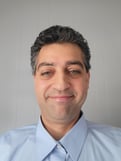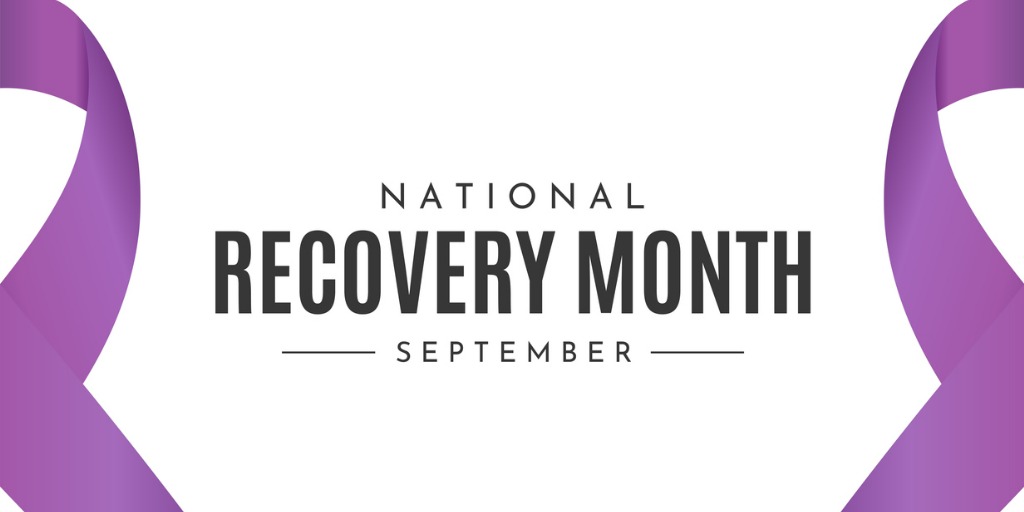Does your health insurance cover recovery support?
Did you know that Mass General Brigham Health Plan was one of the first health plans in the country to have peer recovery coaches on staff? As part of National Recovery Month, we're highlighting our Peer Recovery Coaches and how they help members access different pathways of recovery.
Together, Barry Shelton, CARC, CPS, and Chris Bonsall, CARC, have over 20 years of experience with the complex issues involved in recovery. As recovery coaches, they work with members to identify their strengths and skills while offering guidance through the recovery journey. Continue reading to learn more about their experiences directly.
What led to your role as a peer recovery coach?
 Barry Shelton, CARC, CPS: I'm a person in long-term recovery; this past May, I celebrated 21 years of sobriety. I had a previous career as a practicing lawyer in Massachusetts, but I decided to retire from law and do something different.
Barry Shelton, CARC, CPS: I'm a person in long-term recovery; this past May, I celebrated 21 years of sobriety. I had a previous career as a practicing lawyer in Massachusetts, but I decided to retire from law and do something different.
Initially, I got involved by volunteering at a peer recovery center part-time. Later on, I worked as an on-call recovery coach, where I would be called by the emergency room when there was an overdose. I would go and sit with overdose survivors and see if there was something I could do for them. After that role, I decided I wanted to coach full-time, so I applied for this role and have been here since April 2018.
 Chris Bonsall, CARC: First and foremost, I have struggled with addiction since the age of 9 years old. My journey started with a recovery process. I was in trouble with the law and ended up getting put on recovery court probation. It was called Drug Court probation, now called Recovery Court. I completed drug court probation, and through that process, I did some self-exploration and learned that I enjoyed helping others afflicted with substance use disorder, and it quickly became a passion. I initially started going to school at UMass Boston to become an addiction counselor. After working as a counselor, I completed the recovery coach academy, veered away from the clinical aspect of the recovery world, and started working as a coach. Believe it or not, I ended up working in the drug court where I had recently graduated. So, it felt like it all came full circle; it was surreal. I worked for that organization for nine months to a year, and then I applied entirely on a whim for this role.
Chris Bonsall, CARC: First and foremost, I have struggled with addiction since the age of 9 years old. My journey started with a recovery process. I was in trouble with the law and ended up getting put on recovery court probation. It was called Drug Court probation, now called Recovery Court. I completed drug court probation, and through that process, I did some self-exploration and learned that I enjoyed helping others afflicted with substance use disorder, and it quickly became a passion. I initially started going to school at UMass Boston to become an addiction counselor. After working as a counselor, I completed the recovery coach academy, veered away from the clinical aspect of the recovery world, and started working as a coach. Believe it or not, I ended up working in the drug court where I had recently graduated. So, it felt like it all came full circle; it was surreal. I worked for that organization for nine months to a year, and then I applied entirely on a whim for this role.
When I got the call that I got the job, I was in tears just to see how fortunate I was to be offered such an opportunity. Being accepted into an organization as large as Mass General Brigham made me feel like I had succeeded at something, and it kept the fire burning to want to help people. That's how I came to our members and how I help support them on a day-to-day basis.
Who do you work with as a peer recovery coach?
 Barry Shelton, CARC, CPS: As a peer recovery coach, I wear a lot of different hats. I tell people that I'm a personal guide, a motivator, a resource broker, and an advocate. I find a lot of the job is advocating for people who seek recovery—and then—advocating for recovery and the movement itself. The World Health Organization has identified drug abuse as the number one condition that is stigmatized the most—and alcohol abuse is number 4. There is a tremendous amount of stigma that people with substance use disorders suffer, and I think that's one of the reasons why recovery coaching is so successful—because we’ve been there. We understand some of the troubles and struggles that people go through, and we don't judge. We meet people where they’re at. It's a strength-based approach. We ask them what they are willing to do right now—and we start with that.
Barry Shelton, CARC, CPS: As a peer recovery coach, I wear a lot of different hats. I tell people that I'm a personal guide, a motivator, a resource broker, and an advocate. I find a lot of the job is advocating for people who seek recovery—and then—advocating for recovery and the movement itself. The World Health Organization has identified drug abuse as the number one condition that is stigmatized the most—and alcohol abuse is number 4. There is a tremendous amount of stigma that people with substance use disorders suffer, and I think that's one of the reasons why recovery coaching is so successful—because we’ve been there. We understand some of the troubles and struggles that people go through, and we don't judge. We meet people where they’re at. It's a strength-based approach. We ask them what they are willing to do right now—and we start with that.
What kind of impact does your work have on our members and community?
Ch ris Bonsall, CARC: Recovery coaching is not only advocating for our members and others in recovery, but it's also advocating for recovery as a whole. When you talk about the multiple facets that we fill as coaches, that's one of the biggest ones. It's about showing people we can make an impact and there are gaps to fill—and recovery coaching is one of the best ways to fill some of those gaps. It's a testament to our organization that we recognize that, which is why we have coaches that can immediately respond to individuals that may be struggling with any form of substance use disorder or any addictive behavior.
ris Bonsall, CARC: Recovery coaching is not only advocating for our members and others in recovery, but it's also advocating for recovery as a whole. When you talk about the multiple facets that we fill as coaches, that's one of the biggest ones. It's about showing people we can make an impact and there are gaps to fill—and recovery coaching is one of the best ways to fill some of those gaps. It's a testament to our organization that we recognize that, which is why we have coaches that can immediately respond to individuals that may be struggling with any form of substance use disorder or any addictive behavior.
Peer recovery coaching has an enormous impact on the community and our members. I often say that it's hard to gauge success in this field. However, I feel that one touch is a success. If I can get in touch with someone and I can plant a seed, and hopefully give somebody a light at the end of the tunnel, knowing that there is hope out there and they're not alone—that's a big win in my book.
What does being a Peer Recovery Coach mean to you?
 Barry Shelton, CARC, CPS: I see myself as part of a larger movement happening in the recovery field for the last 20 years; that's a movement away from the acute intervention model. We're moving away from the model of intervention, treatment, and then you hit the street. The trend now is towards the long-term management of the condition, which is where I come in, helping people at all stages of change and supporting them on into the maintenance phase of recovery. Along the way, we help them discover additional recovery supports such as counseling or getting involved with mutual aid groups like AA, NA, or activity-based groups.
Barry Shelton, CARC, CPS: I see myself as part of a larger movement happening in the recovery field for the last 20 years; that's a movement away from the acute intervention model. We're moving away from the model of intervention, treatment, and then you hit the street. The trend now is towards the long-term management of the condition, which is where I come in, helping people at all stages of change and supporting them on into the maintenance phase of recovery. Along the way, we help them discover additional recovery supports such as counseling or getting involved with mutual aid groups like AA, NA, or activity-based groups.
What message do you have for anyone struggling during National Recovery Month?
 Chris Bonsall, CARC: The most important message I can give to anyone during national recovery month or the entire process of this recovery world is that—you're not alone. There are people out there that are willing and able to help.
Chris Bonsall, CARC: The most important message I can give to anyone during national recovery month or the entire process of this recovery world is that—you're not alone. There are people out there that are willing and able to help.
Whether it be myself, my colleague Barry, or anyone outside in the community of the peer recovery centers in the recovery world, we're here to help, and you're not alone. Even though sometimes it's overwhelming and you can feel so alone, that's the nature of our disease; it isolates us so that we don't ask for help. Tackle your fears and humble yourself so that you can ask for help—because a closed mouth doesn't get fed.
 Barry Shelton, CARC, CPS: IRecovery is always possible—and it is possible at any stage. I did this, and you can do it too.
Barry Shelton, CARC, CPS: IRecovery is always possible—and it is possible at any stage. I did this, and you can do it too.
One of the great things about the job is I work with a very diverse population. I've worked with people that are homeless, and I've seen very tough low-bottom cases find recovery.
I've also helped doctors and lawyers. Recovery does not discriminate.
Can you talk about the support and resources available to our members—and how important they are to recovery?
 Chris Bonsall, CARC: Our care management team is available to all members, assisting them with anything from rehabilitation to nutrition. For example, we offer short-term meal programs for individuals struggling with proper diet because of renal failure or similar diet restricting illnesses. We also connect people with behavioral health providers. With regard to navigating the complexities of the healthcare world; It's helpful just to have someone there to say, hey, this is what you need to do, this is how you do it, and if you need me to, I can even make the phone call for you.
Chris Bonsall, CARC: Our care management team is available to all members, assisting them with anything from rehabilitation to nutrition. For example, we offer short-term meal programs for individuals struggling with proper diet because of renal failure or similar diet restricting illnesses. We also connect people with behavioral health providers. With regard to navigating the complexities of the healthcare world; It's helpful just to have someone there to say, hey, this is what you need to do, this is how you do it, and if you need me to, I can even make the phone call for you.
We have social care managers that help members who may be struggling with homelessness, food disparities, or any other issue that may impede someone from success in their recovery process. We have community health workers that help members engage in the services that are available for them. And then, of course, we have our recovery coaches for people struggling with any form of addiction; that doesn't necessarily have to be a substance use disorder; it can also be gambling, food, etc. We also have health coaches, diabetes specialists, a smoking cessation program, and the list goes on. I may be a little biased because I'm working for the organization, but I genuinely do feel that even if I didn't work here, I would want Mass General Brigham Health Plan for my insurance.
If you're interested in learning more about recovery support, download our printable flyer in English and Spanish
For more information, or to refer yourself or someone you know to a recovery coach: Email us at: HealthPlanYourCareCircle@mgb.org or call our Clinical Support Coordinator at 866-456-4059.
